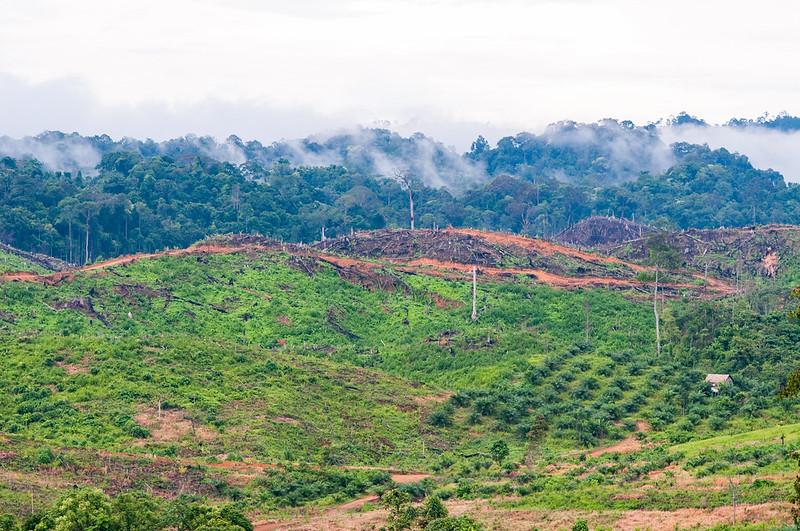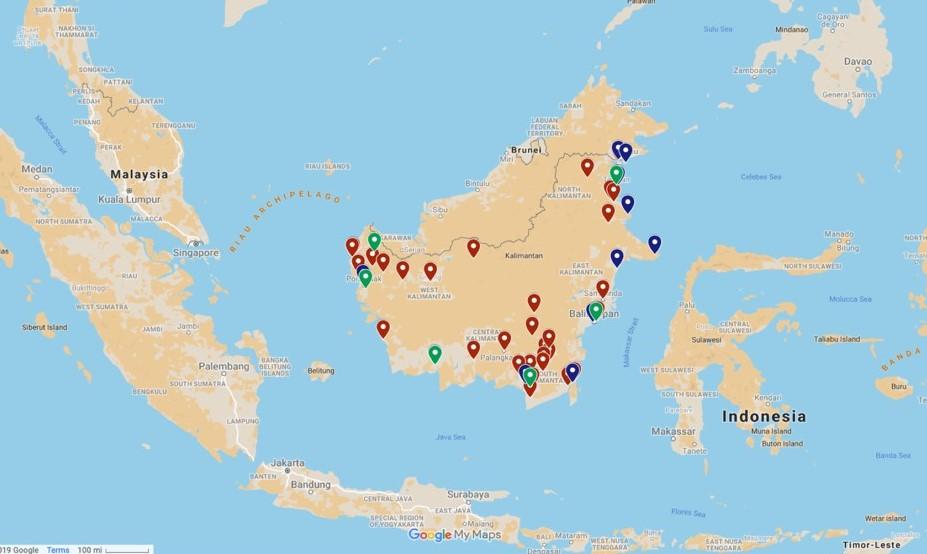The military and strategic implications of Indonesia’s new capital
Posted By Evan Laksmana on November 6, 2019 @ 13:31

Since it was announced [1] in August, Indonesia’s plan to relocate its capital to East Kalimantan in Borneo has engendered much debate, but few have examined the potential military and strategic implications of the move.
The Indonesian military (TNI) will significantly increase its presence across Kalimantan—effectively ‘militarising’ Borneo. The map below shows the current deployment of most major TNI assets and bases across Kalimantan.


Map created by the author using Google Maps.
The deployment suggests the clustering of current TNI forces—roughly around 20,000 personnel—in the eastern, western and northern parts of Kalimantan. It is also army-heavy at the moment. The few naval and air force bases are relatively small and underdeveloped for major platform deployments; the air force has only one major base, while the navy has two.
This posture will change significantly as major leadership and force elements move to Kalimantan with the new capital. The TNI General Headquarters will move, along with its supporting staff and units, from intelligence groups and military police to special forces and press officers.
The army leadership and its supporting infrastructure will follow suit. To supplement the two existing regional commands (KODAMs), the Army will create a new Capital Security Regional Command (KODAM PIK). The new army headquarters and KODAM PIK will require around 15,000 personnel, including an infantry and a cavalry brigade as well as special forces units.
While most of these troops are territorial forces, the proposal will eventually bring the total number of combat-ready troops across Kalimantan to three brigades (around 7,000–8,000 personnel). Army analysts have also suggested [2] that Kalimantan needs new forces across the island, including one KODAM and its accompanying units for each of the five provinces.
The navy will also move its headquarters and supporting units. Current proposals call for a new ‘armada-level’ force, a new division-level marine unit and a third primary naval base in Kalimantan. The area also needs new port facilities and bases to host and maintain major platforms as well as a new naval airfield. The navy’s transport command and hydrographic service could possibly be relocated there as well.
The air force will move its headquarters and supporting units and create major bases and facilities. Radar and missile defence units along with a special forces battalion and two aviation squadrons could be established near the new capital. Major platforms will be deployed in the area, including possibly up to 16 new F-16V fighter aircraft [3].
The government would need to spend more than US$9 billion—almost equal to next year’s total defence budget—to pay for these shifts in the coming years. If the plans materialise, Kalimantan will be the first ever non-Java military centre of gravity for Indonesia.
But the new capital will also be closer to potential conflict flashpoints. It will share borders with Malaysia and Brunei. It will also be closer to the tri-border area (with Malaysia and the Philippines) that analysts have called a ‘key hub [4]’ for transnational terrorist and criminal activities.
Eastern Kalimantan also sits at the heart of the Makassar Strait—a central feature of the second of Indonesia’s three strategic archipelagic sea lanes (ASL II), which includes the Lombok Strait. Some consider the Lombok and Makassar straits as an alternative to Malacca Strait as a direct route between the Indian and Pacific oceans.
The Makassar Strait stretches about 400 nautical miles from its northern gateway to its southern access. Each year, 420 mostly large ships [5] (over 100,000 tonnes deadweight) travel through the Lombok and Makassar passageway carrying around 36 million tonnes of cargo worth US$40 billion.
Given these interests, the TNI arguably needs to increase its presence across Kalimantan. That would complement its growing presence in Sulawesi in recent years, which includes a new submarine port in Palu and a third infantry division of the army’s Strategic Reserve Command near Makassar. Control and safety over ASL II will thus come from the TNI’s presence in both Kalimantan and Sulawesi.
But military presence alone is insufficient. Indonesia should also boost its defence diplomatic engagement and activities.
Indonesia should put more resources into expanding and institutionalising its trilateral cooperation [6] with Malaysia and the Philippines. That will not only be crucial for the new capital’s security but also assuage concerns over the TNI’s heavy presence.
Indonesia should have regular consultations with Malaysia and Brunei. It might also consider starting a dialogue with the members of the Five Power Defence Arrangements: Singapore, Australia, New Zealand, Malaysia and the UK.
Indonesia certainly has no expansionist designs, but historical acrimonies cast a long shadow on both sides. To avoid starting another round of security dilemmas, the TNI’s shift to Kalimantan should be paired with opening up new avenues of dialogue and cooperative activities.
Finally, if Jokowi (and presumably his successor in 2024) carries on with the move, Indonesia’s defence policy will be hamstrung for the next decade. Any available resources for procurement, welfare improvement and organisational development will be diverted to the Kalimantan deployment plans.
For now, the TNI will focus on organisational restructuring. In September, it appointed the first three commanders [7] of the new Joint Regional Defence Commands, which aren’t yet fully staffed and operational, much like other newly created units [8] in recent years. But Indonesia’s regional power and profile will be significantly boosted if all of the plans for the TNI outlined above materialise.
The new capital will have significant strategic implications. The TNI and the Indonesian political leadership should carefully assess their options in Kalimantan and consider the broader regional—not just the bureaucratic or domestic—circumstances.
Article printed from The Strategist: https://aspistrategist.ru
URL to article: /the-military-and-strategic-implications-of-indonesias-new-capital/
URLs in this post:
[1] announced: https://www.news.com.au/technology/environment/indonesia-to-move-capital-from-sinking-jakarta-to-borneo/news-story/21604516ee418135d4d17b1542971990
[2] suggested: https://www.republika.co.id/berita/nasional/jabodetabek-nasional/pxdjxk328/kolom/wacana/19/09/05/pxc7m1423-ibu-kota-baru-perubahan-centre-of-gravity-dan-implikasinya
[3] 16 new F-16V fighter aircraft: https://www.asiatimes.com/2019/05/article/to-pacify-trump-indonesia-seeks-american-arms/
[4] key hub: https://www.rand.org/pubs/occasional_papers/OP372.html
[5] 420 mostly large ships: https://www.rsis.edu.sg/rsis-publication/rsis/1686-maritime-highways-of-southeast/#.XacuFSVlBMY
[6] trilateral cooperation: https://www.wilsoncenter.org/blog-post/are-sulu-sea-trilateral-patrols-actually-working
[7] three commanders: https://www.straitstimes.com/asia/se-asia/indonesia-appoints-chiefs-for-3-new-defence-commands
[8] newly created units: /journey-to-the-east-the-rebalancing-of-indonesias-force-structure/
Click here to print.